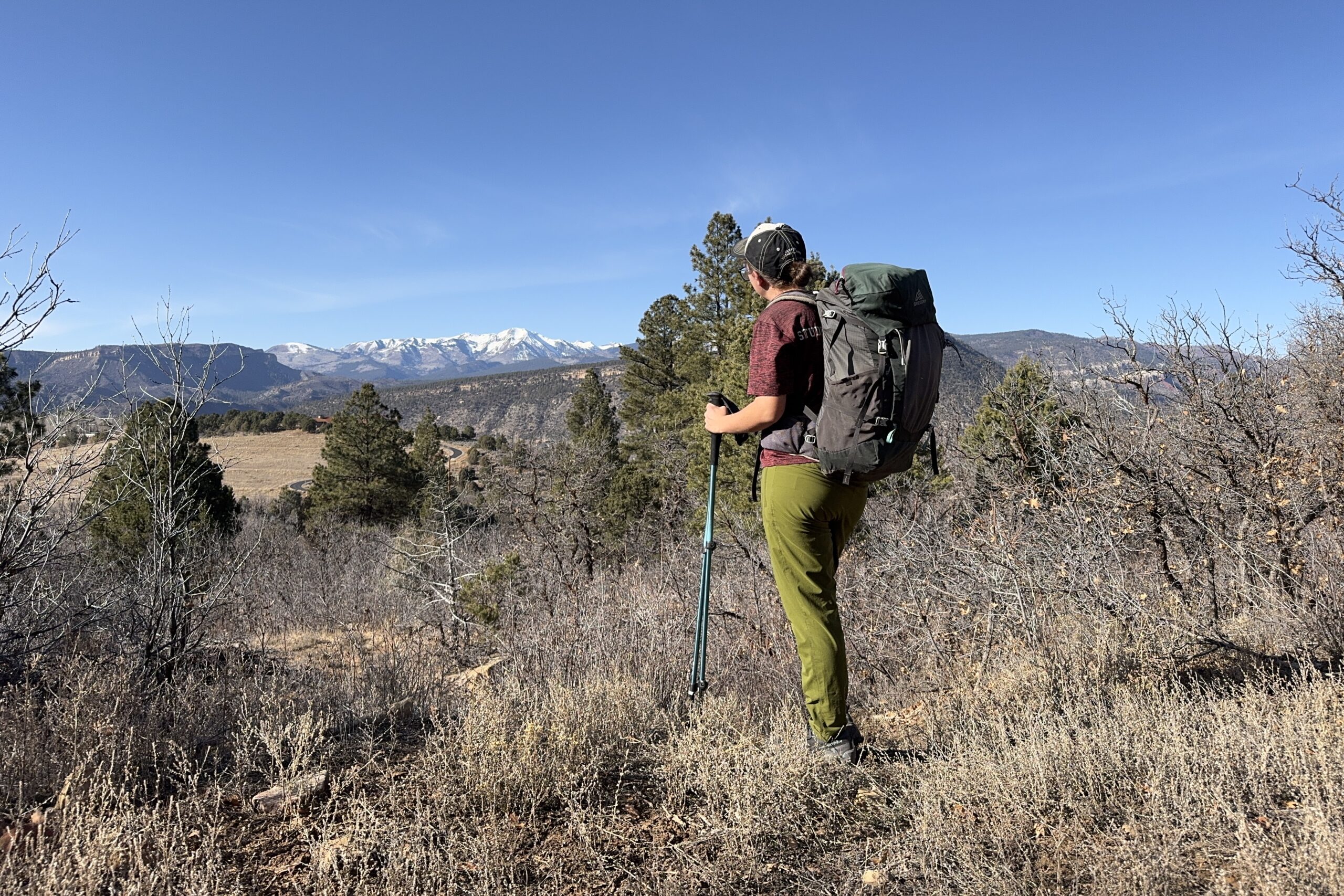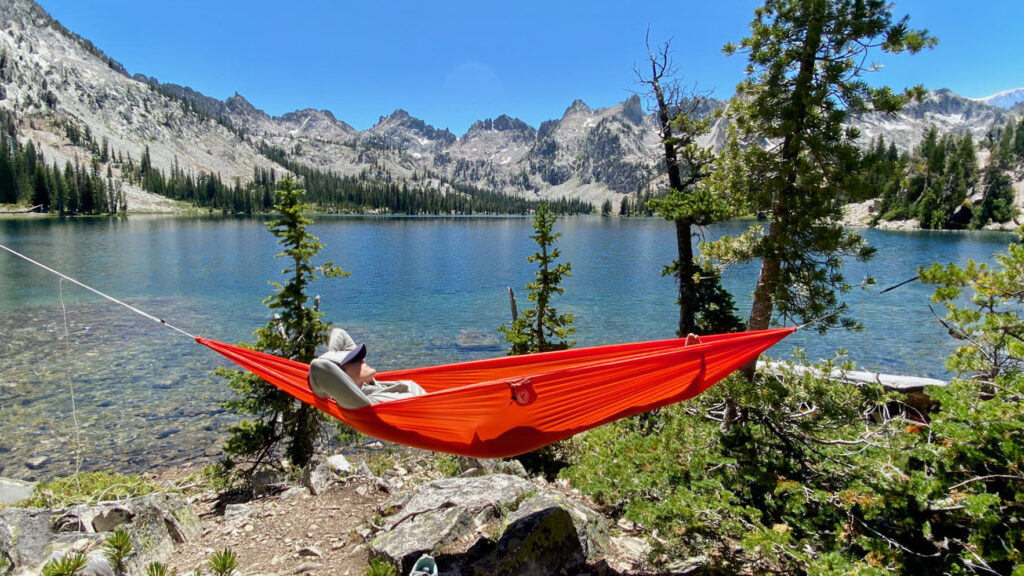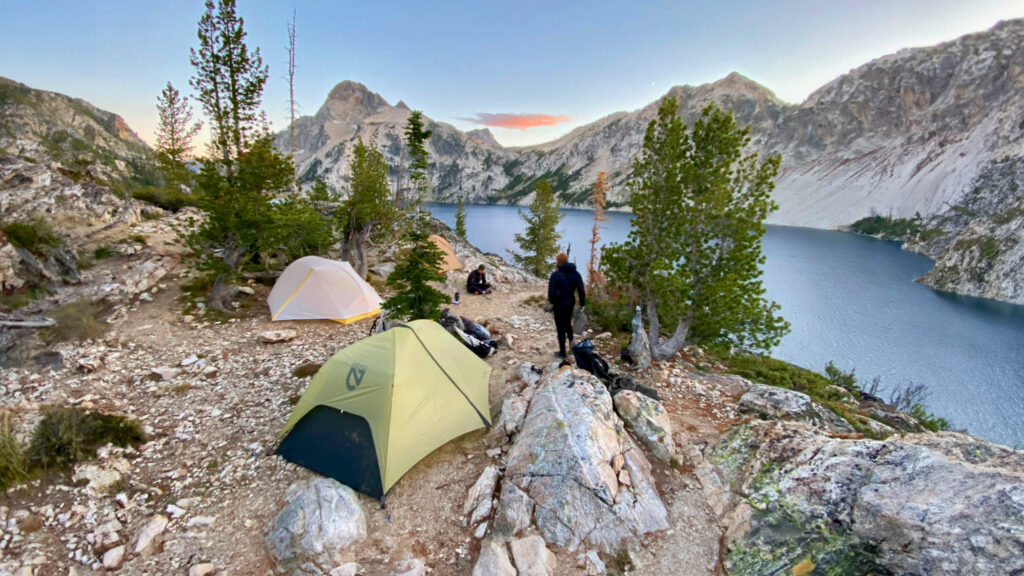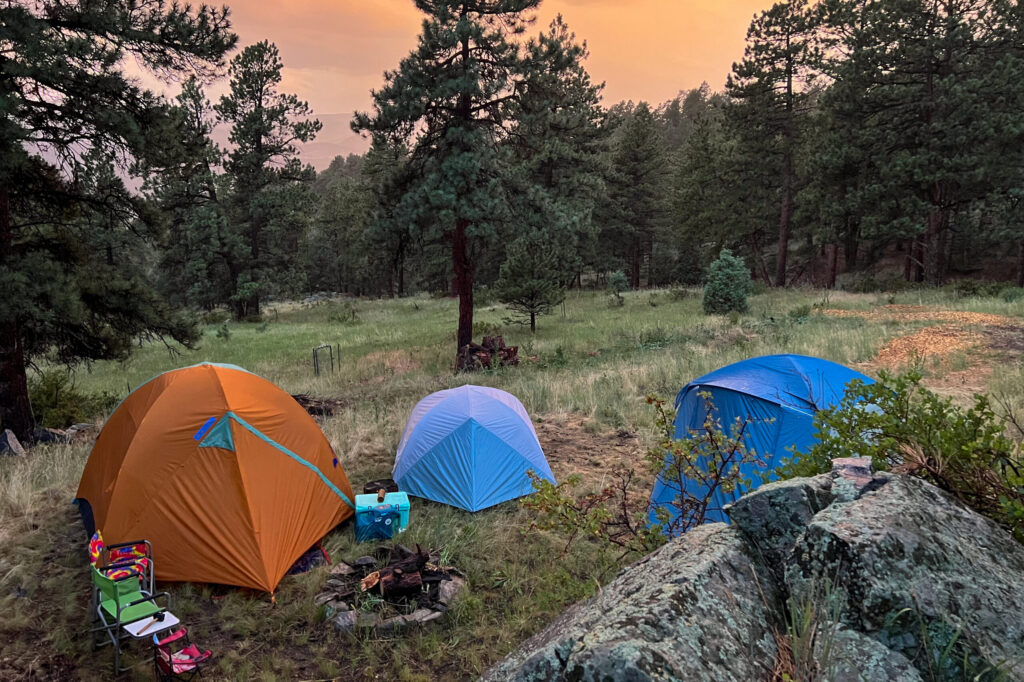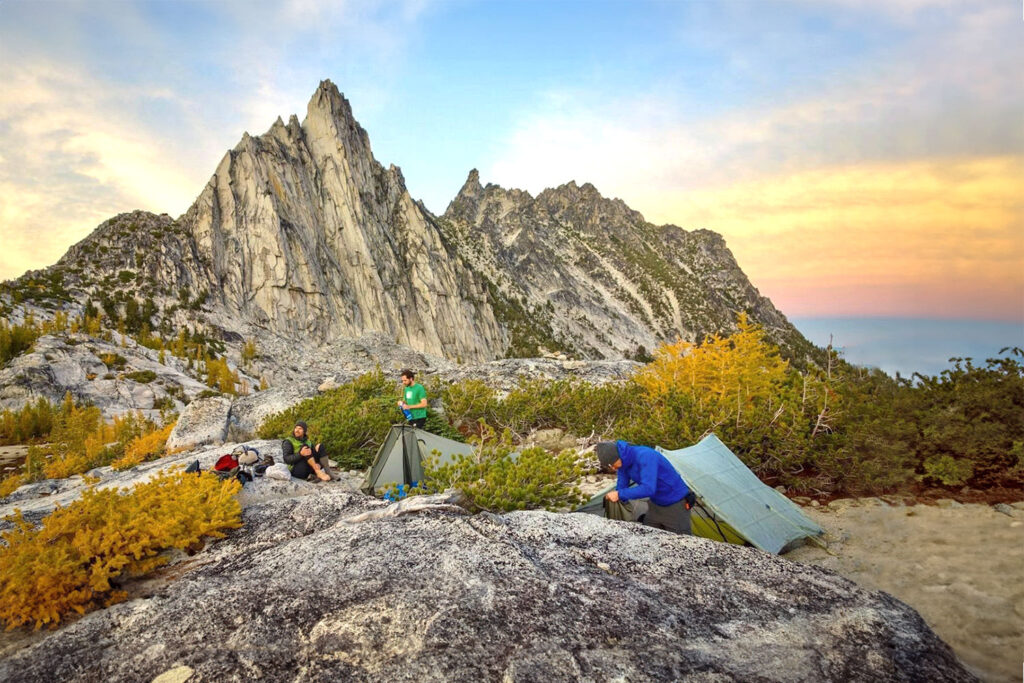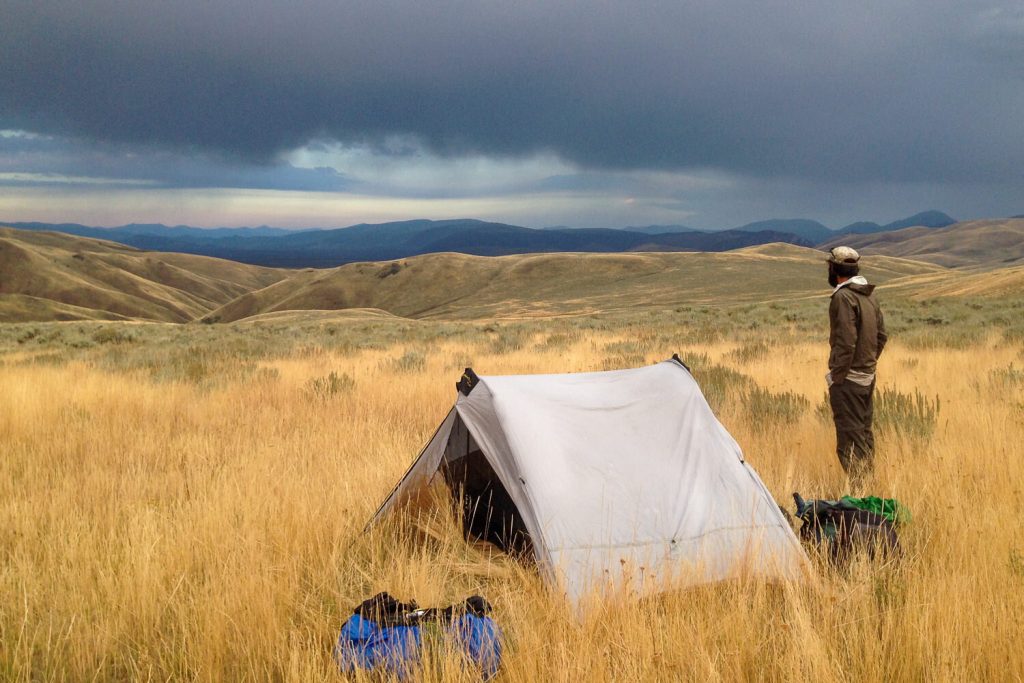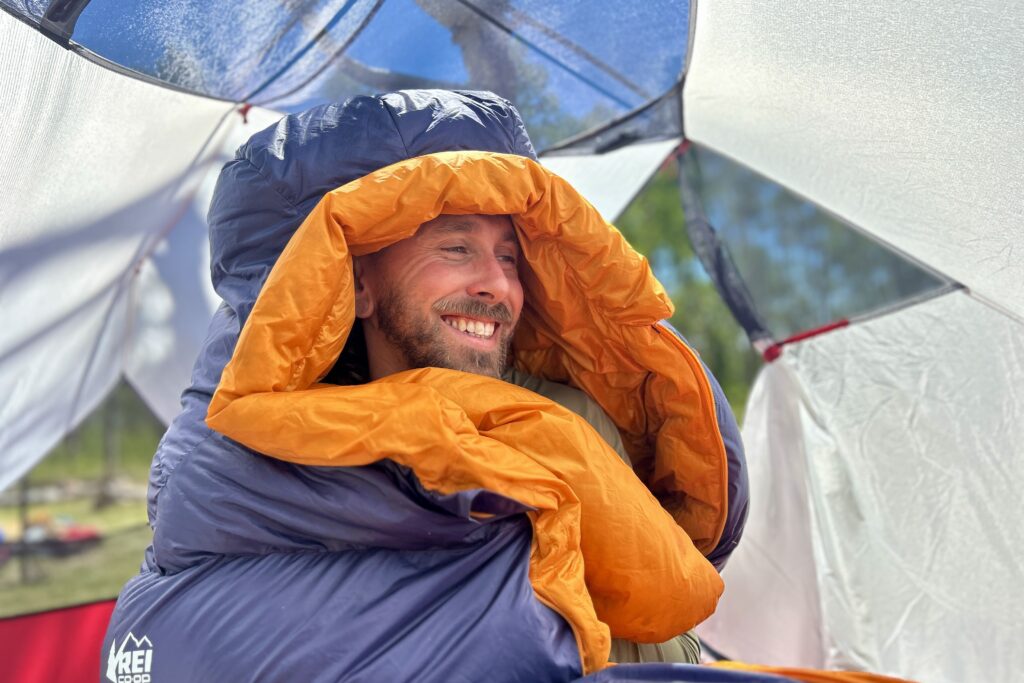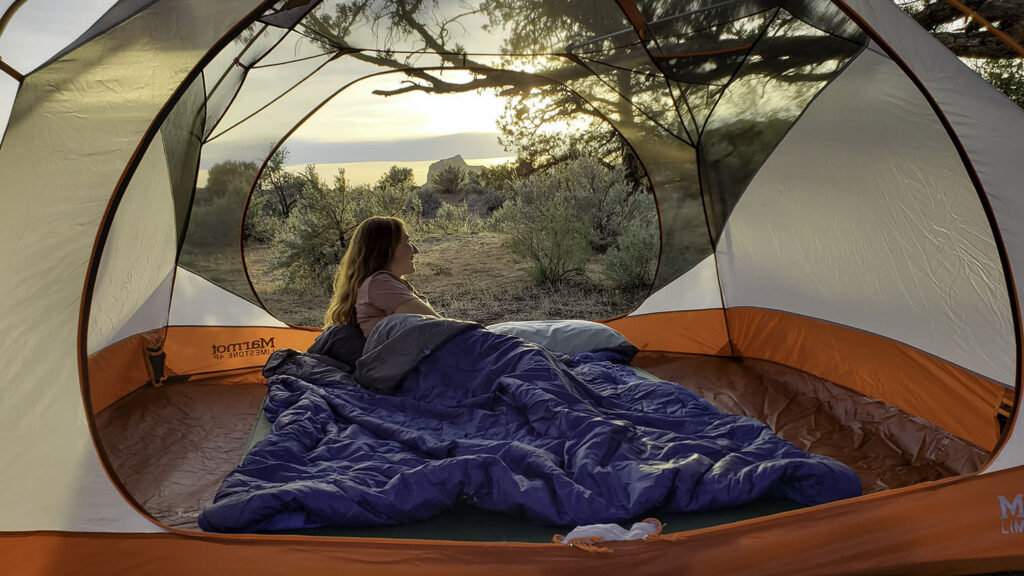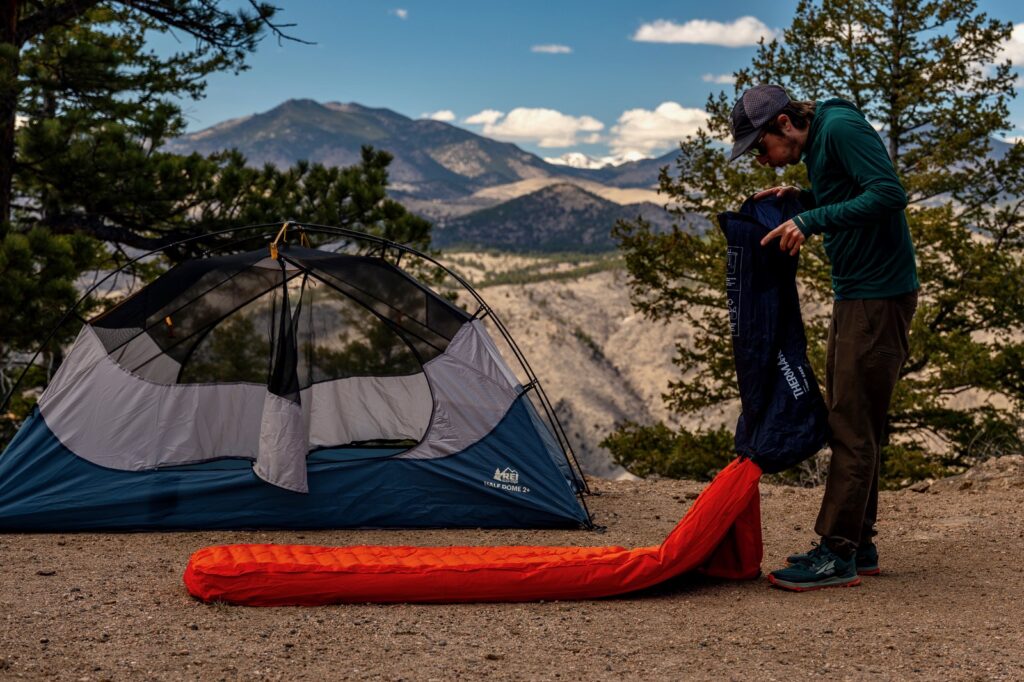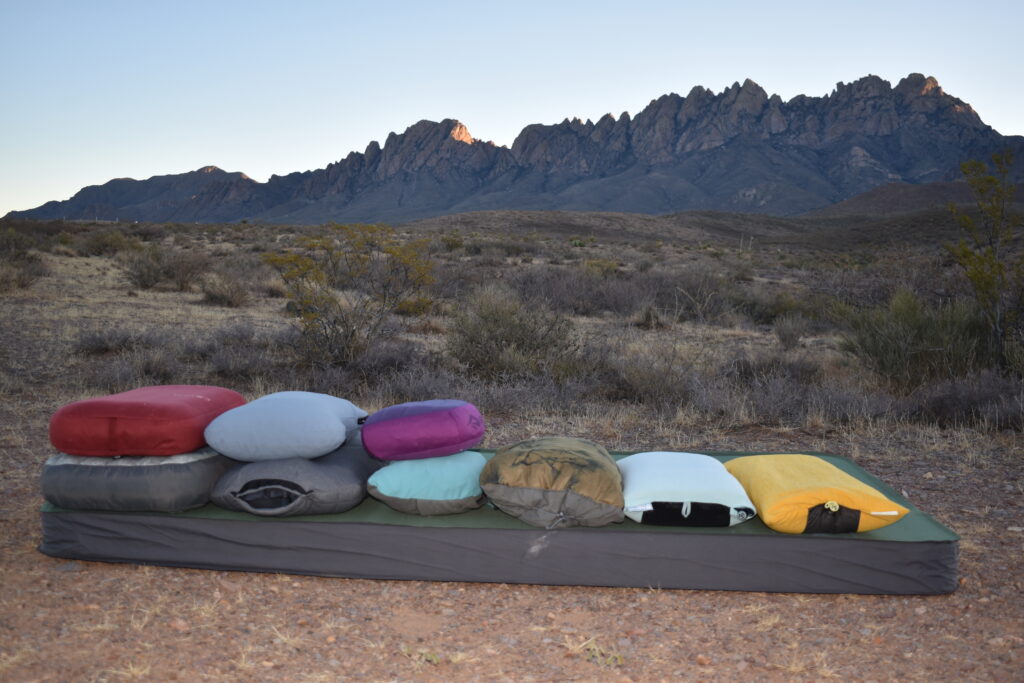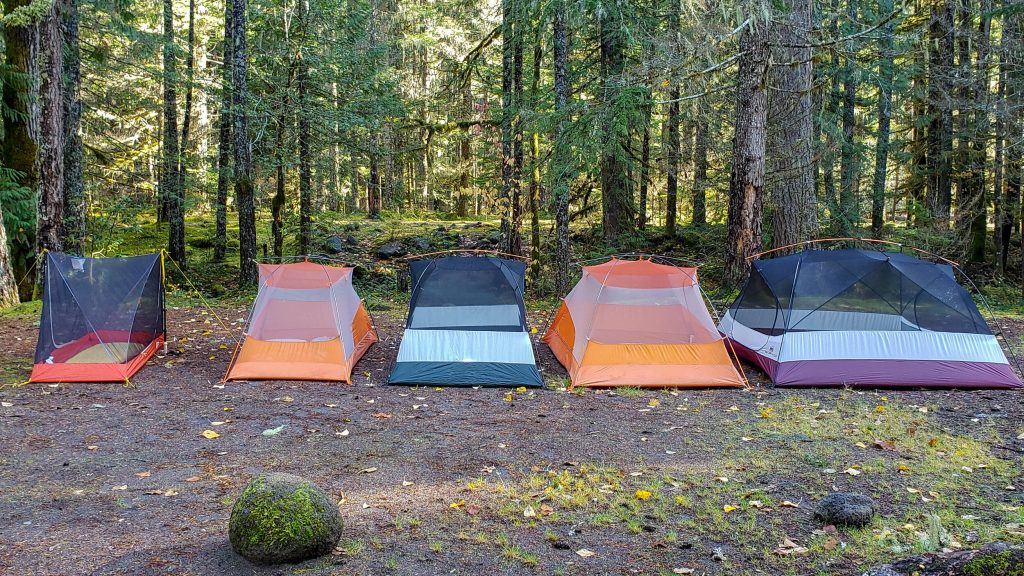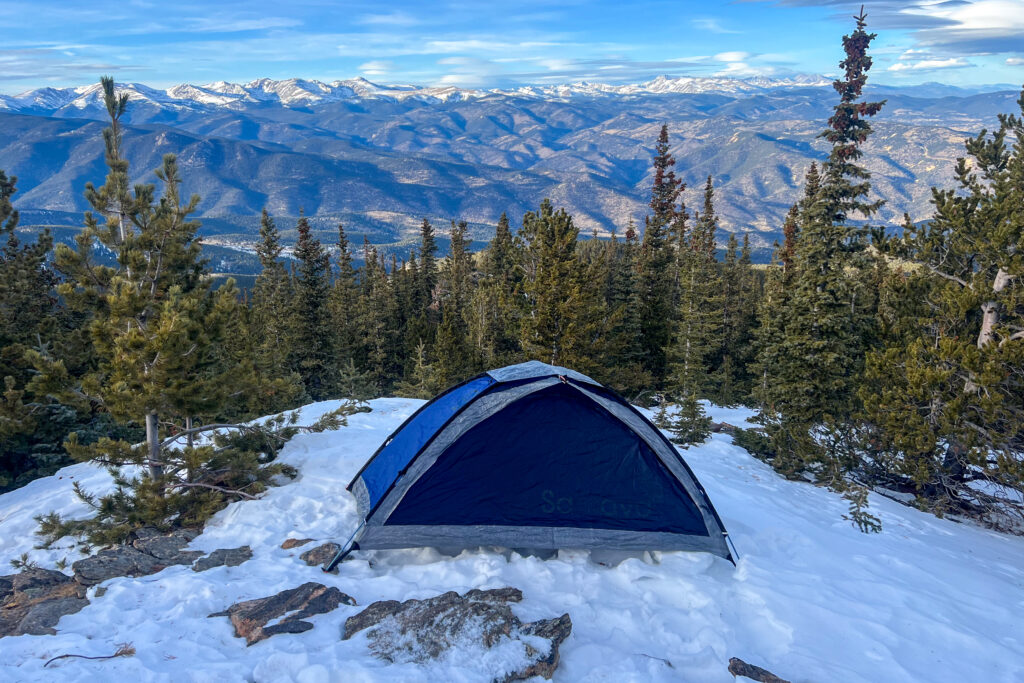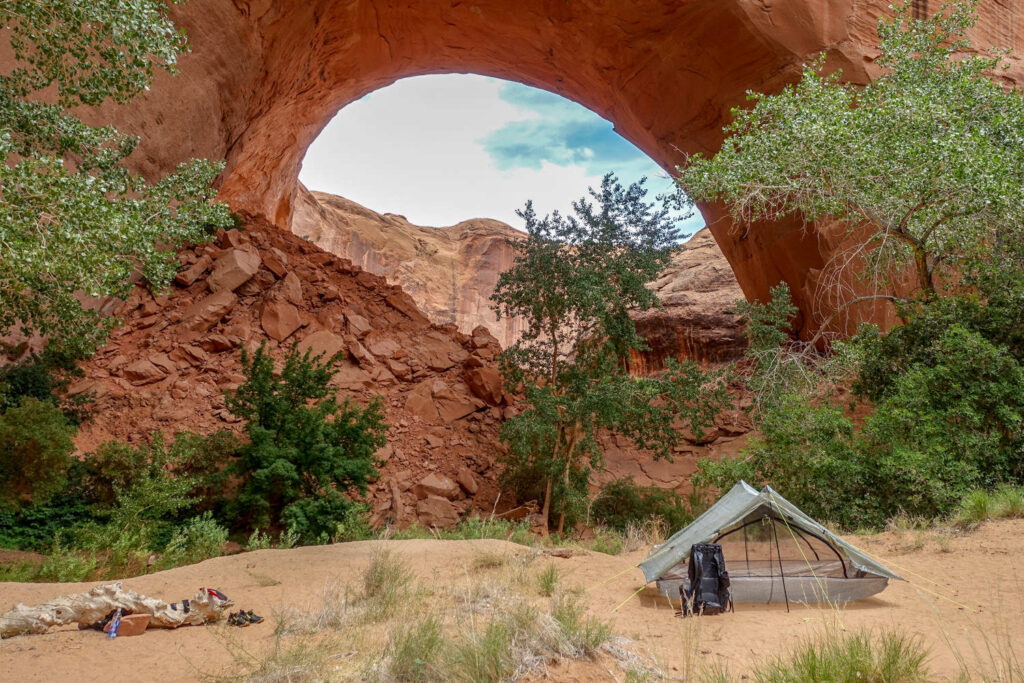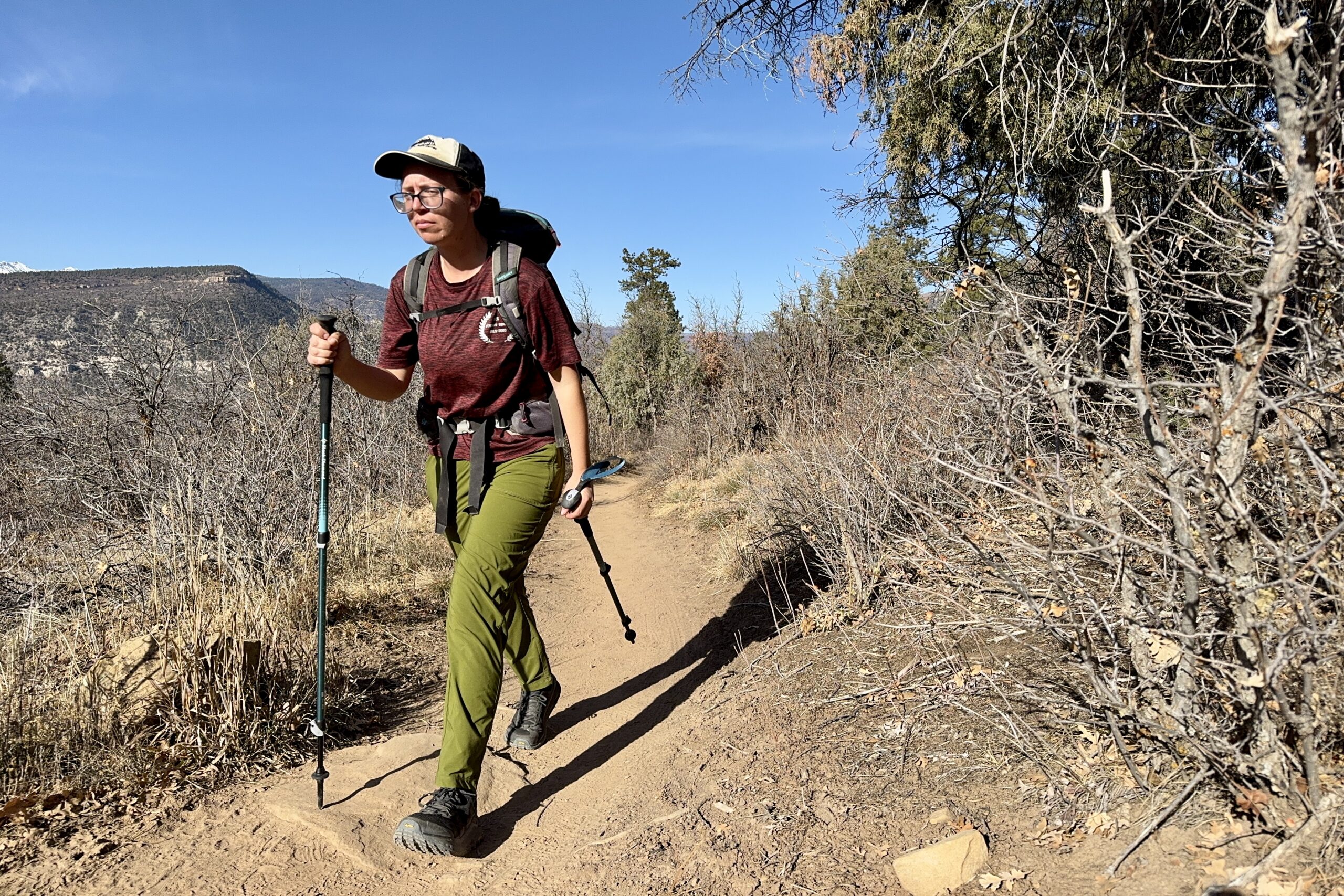
Bottom Line
The Black Diamond Trail Back trekking poles make a fantastic choice for hikers on a budget or who don’t need any frills. These trekking poles performed as well as we expected, given their price tag.
While packability, weight, and ease of use take a slight hit to keep their price down, durability is where these poles truly shine. They are one of our top-performing trekking poles in this area. We trust them for taking the impact of downhill skiing in Colorado. They held up exceptionally well to moguls and pushing on flat stretches. Their durability, paired with the included winter baskets, means these poles are relatively versatile.
We also use them for varied terrain hikes in the summer and for other winter activities, such as snowshoeing. Overall, we appreciate that these poles offer an affordable option for people to get out. See how they compare to our other favorites in our best trekking poles gear guide.
Quick Specs
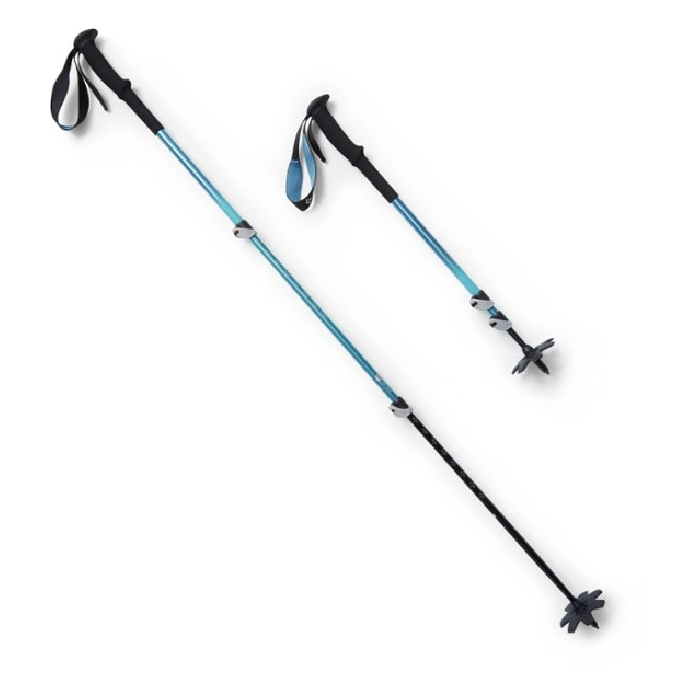
Black Diamond Trail Back
Best Basic Trekking Pole
CleverHiker Rating: 4.3/5.0
Price: $100
Weight (Pair): 1 lb. 2.8 oz.
Shaft Material: Aluminium
Grip Material: Foam
Collapsed Length: 24 in.
Pros
- Price
- Durable
- Versatile
- Included winter baskets
Cons
- Heavy
- Long collapsed length
Durability
The Black Diamond Trail Back is one of the most durable trekking poles we tested. During side-by-side testing, we threw them, dropped them on a boulder, and leaned on them to compare them to the other poles in our lineup. The Trail Back poles sustained a small amount of cosmetic scratching, but we never made a dent structurally. We were especially impressed with their performance in our stress test. While they did bend, they felt robust and difficult to snap.
In addition to side-by-side testing, we also used these poles for downhill skiing. We specifically chose to use these poles due to their aluminum build. Aluminum tends to be more durable than carbon fiber. On the ski hill, we went down several black runs covered in several inches of fresh powder. We skied with total confidence with these poles in hand. We were able to put pressure on them when planting to make turns and push ourselves to the ski lift just fine.
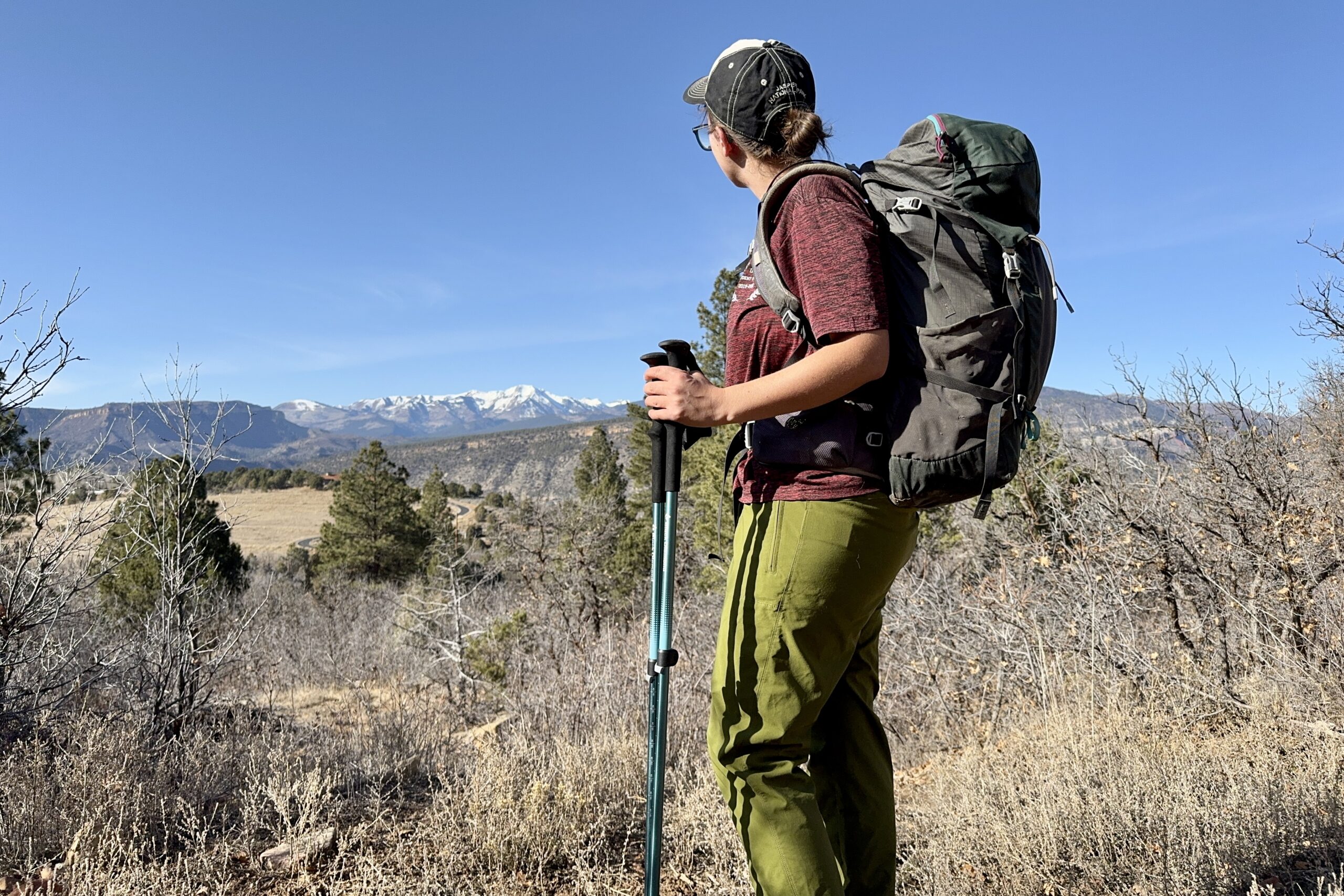
Weight
Ultralight is not a focus area for the Trail Back. It was one of the heaviest models we tested at 9.7 ounces for one pole. This is also slightly heavier than the weight listed on Black Diamond’s website (likely due to the basket).
Sure, it is a bummer that this pole is a bit heavier. But it is not a significant amount compared to most other poles (we are talking a couple of ounces). Plus, those few extra ounces are a matter of about $100 in savings, so for most, it is a worthy compromise.
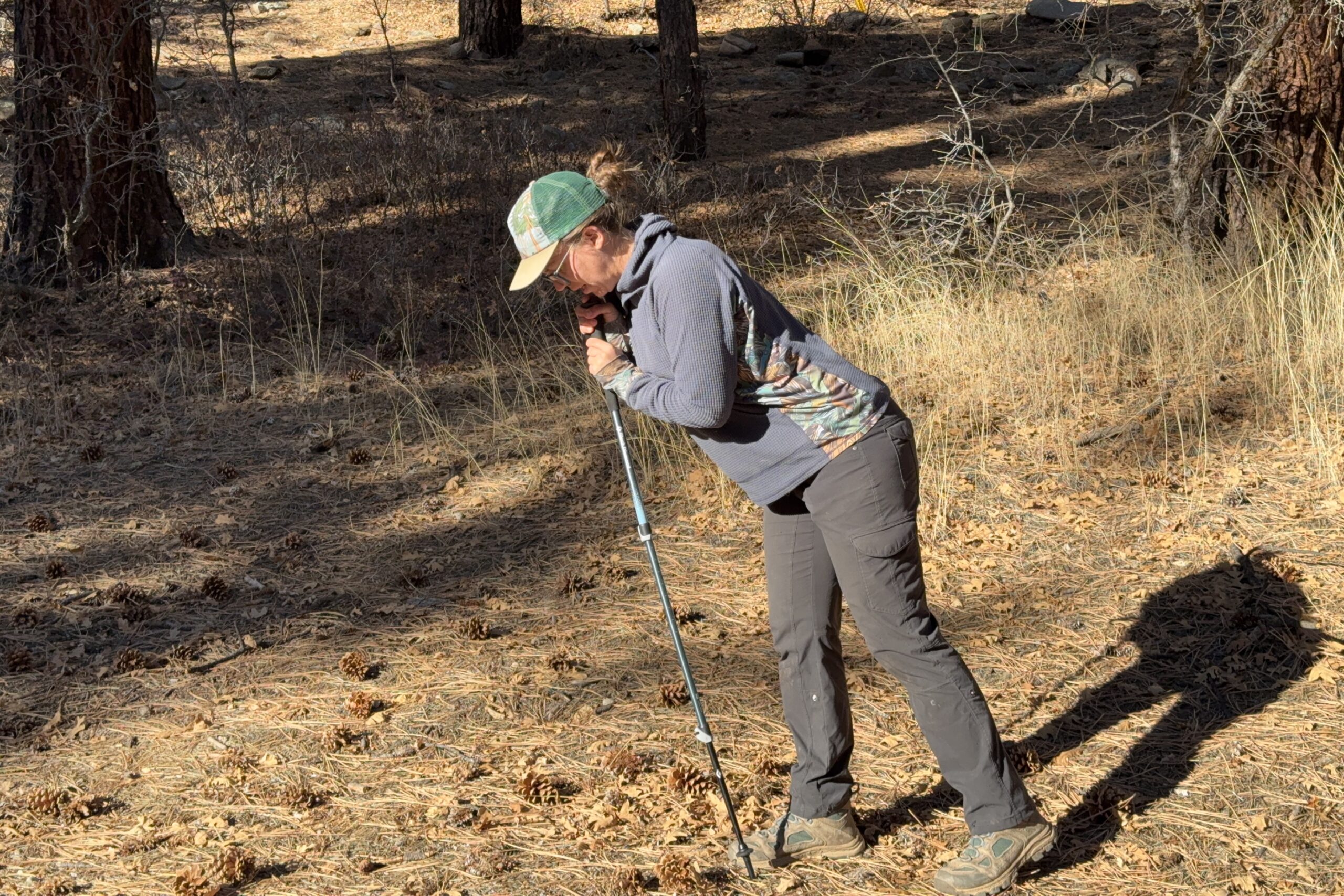
Comfort
The Trail Back performs well in the comfort category thanks to soft wrist straps and easy-to-hold grips. While it would be nice to have some padding on the wrist strap, at least a fabric liner is inside. This makes it more comfortable to use than some of the more simplistic designs on the market.
The grip is basic, but we prefer it over overly complex styles. Our biggest complaint is the lack of cork. This model has a foam grip that doesn’t give your sweat a place to go. In our experience, this leads to sweaty hands, which in turn become dirty.
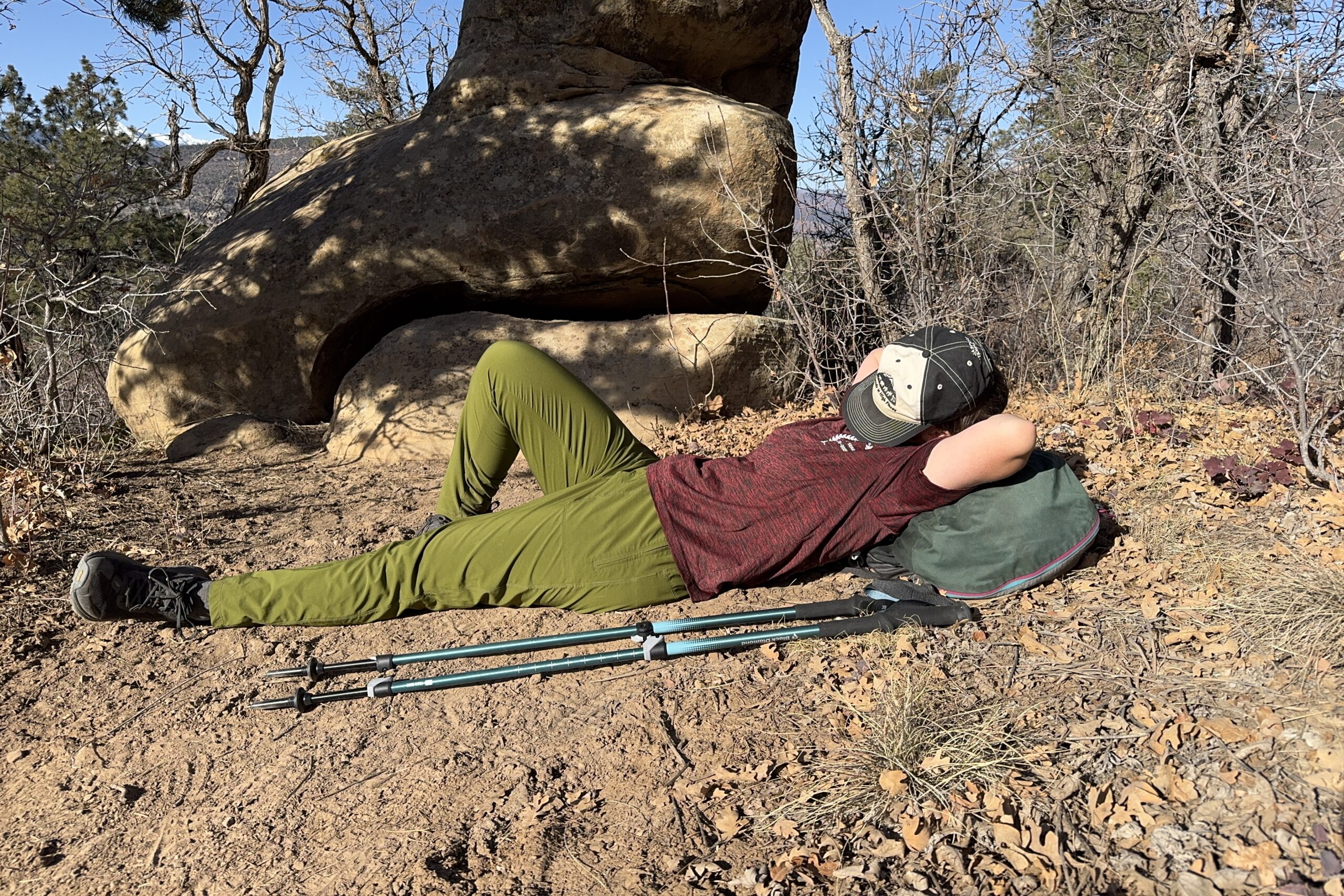
Ease of Use
To compare all the poles we tested side-by-side, we timed how long it would take to expand each pole to the same height.
The Trail Back Poles had one of the longest set extension times, so they earned one of the lowest scores. This is primarily due to the design of the flick locks and poles. The flick locks are very flush with the poles, and the amount of surface area available is limited. While this makes the locking mechanism more secure, it also means that adjustments are harder, especially with gloves or mittens.
The other main issue with this model is that the pole segments are too close in size. There is friction between the poles while extending them, which requires more effort to finagle.
On the bright side, there are measurement markers on both of the extending poles. We prefer having measurements as it makes it easier to set the poles to the same length every time.
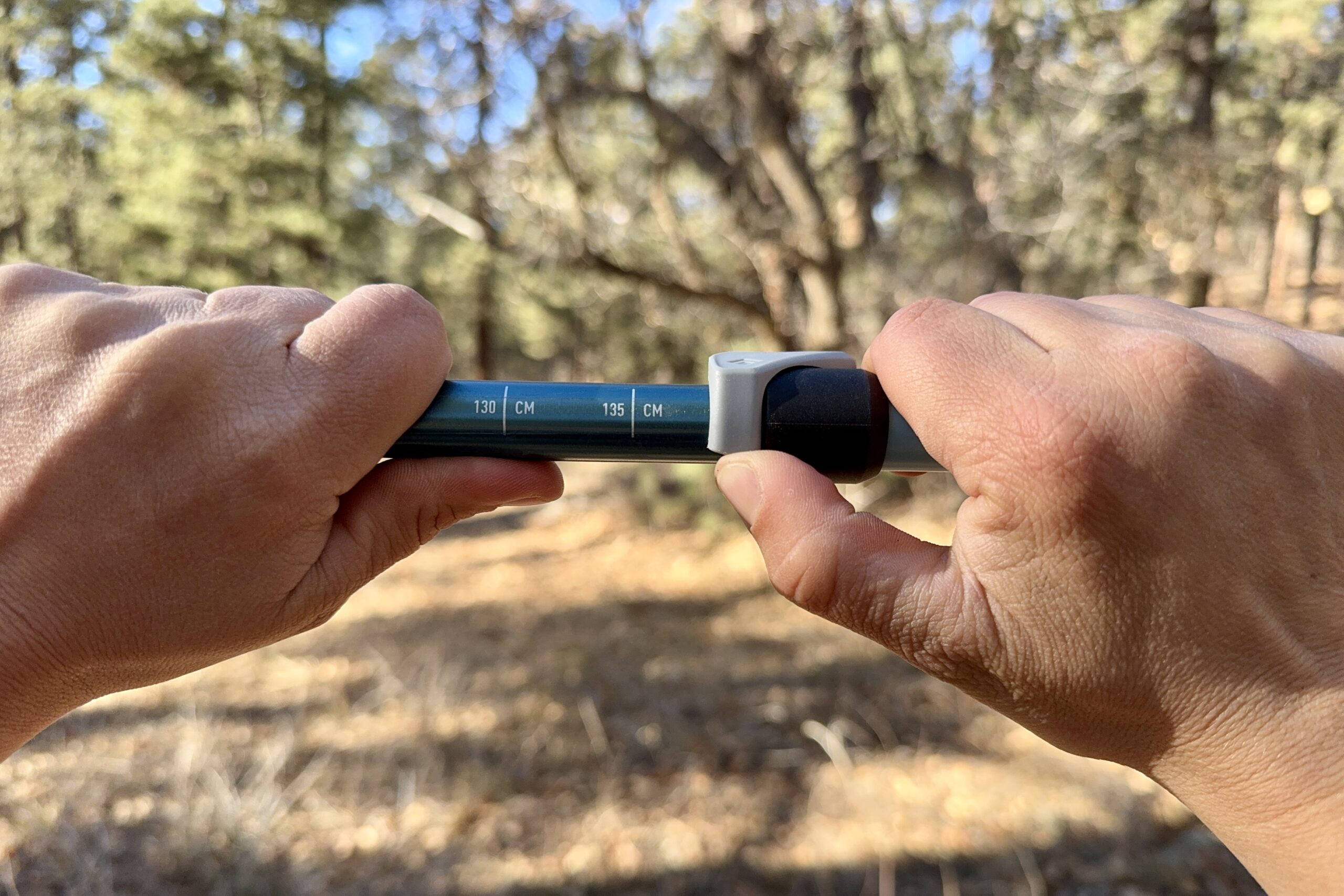
Packability
Packability is another area of improvement for the Black Diamond Trail Back. These poles have the second-longest collapsed length of the group we tested.
At 24 inches when fully collapsed, they are about a foot longer than some folding poles we tested.
This can make a significant difference when trying to stow away poles on a pack when not in use or while traveling. One thing to remember is that telescoping poles will generally have a longer collapsed length than most folding poles. However, it would be nice if this pole could compete more with other telescoping poles in our lineup.
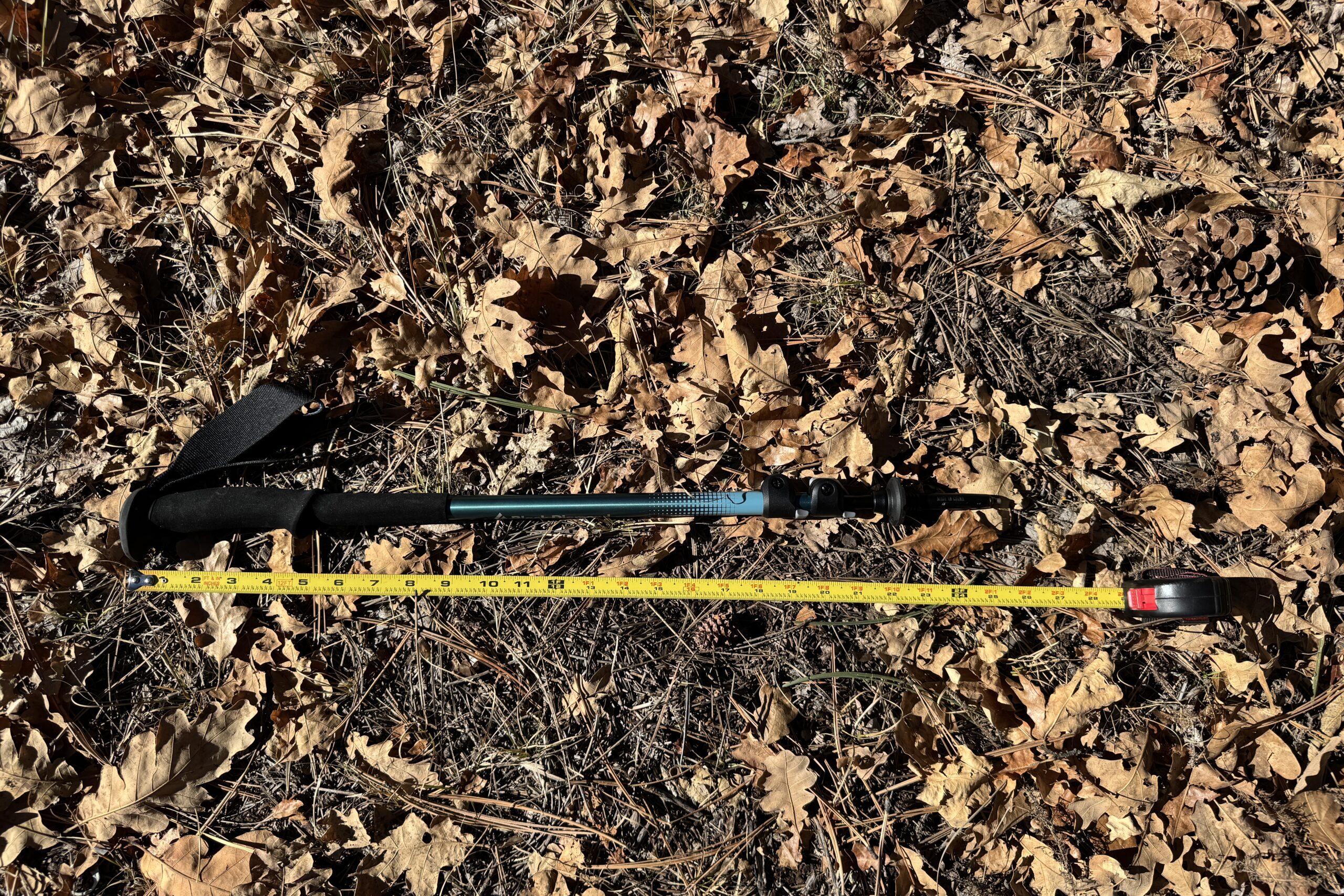
Features
The Trail Back has most of the baseline features we generally look for in a trekking pole, such as extra baskets, wrist straps, and replaceable carbide tips. After scoring the poles based on the number of features they offer, we found that the Trail Back poles scored above average.
One notable feature of this pole is its grip extension. We appreciate that they allow for the pole to be held lower while climbing up a hill. However, we wish the grip extension was longer; the one on this model is relatively short compared to most other poles.
We also appreciate that these poles come with both summer and winter baskets. This is one of the main reasons we use these poles for downhill skiing. One thing to note is that changing the baskets can be difficult on this model. While the baskets are threaded, it took a fair amount of force to remove the summer baskets and put the winter replacements on.
Overall, these poles cover all the main features of a trekking pole, but some bonus features, such as tip covers and adjustable flick locks, would be nice additions.
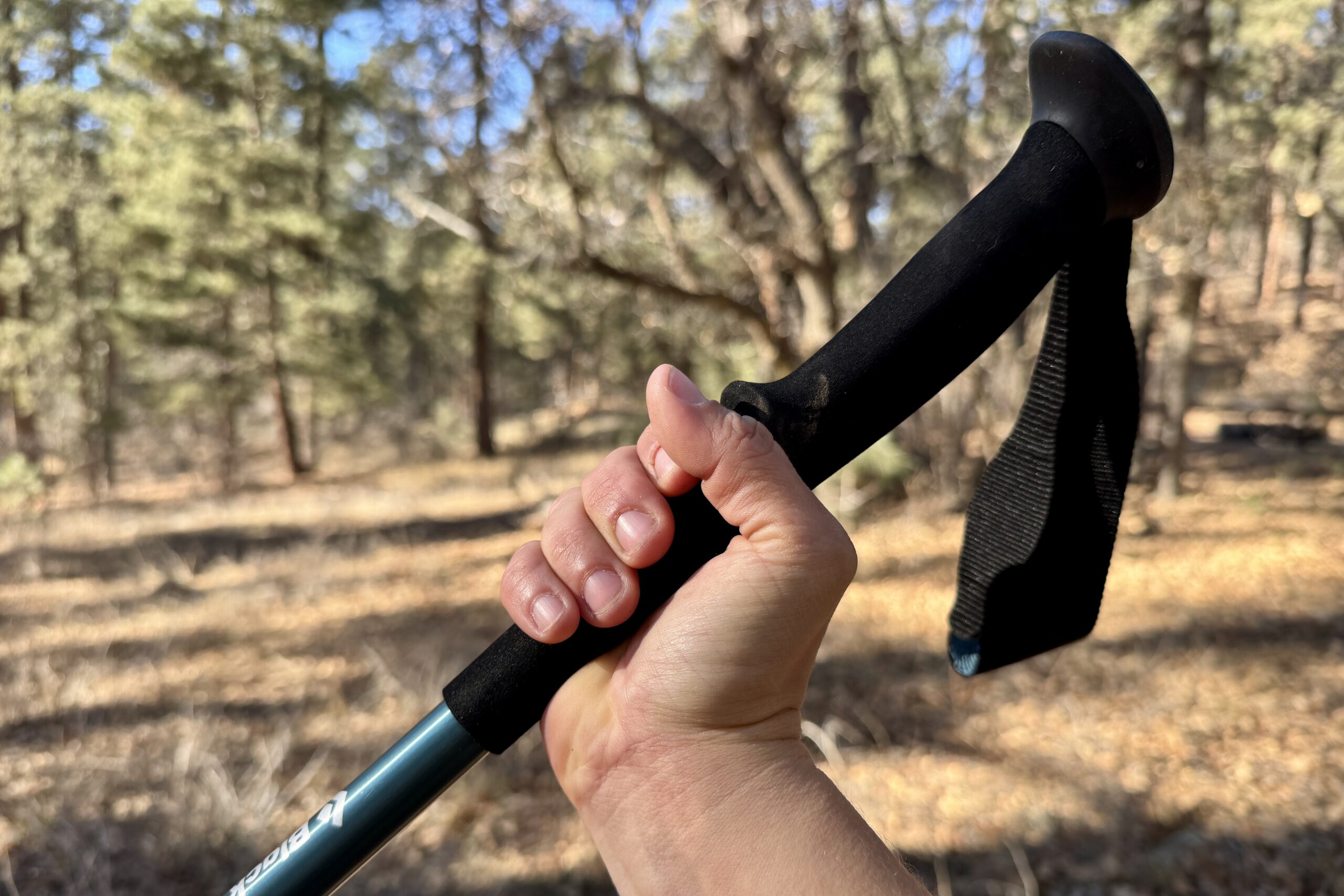
Should You Buy The Black Diamond Trail back Trekking Poles?
While the Trail Back’s performance is not as strong as the other trekking poles we tested, we still think it is an excellent option for beginners or those on a budget. These poles are much more affordable than most other trekking poles we tested. They are also highly durable, making them a wonderful choice for hikers and skiers who want an all-in-one setup. We would not recommend these poles for gear nerds who want the latest and greatest, but they work just fine for the average hiker.
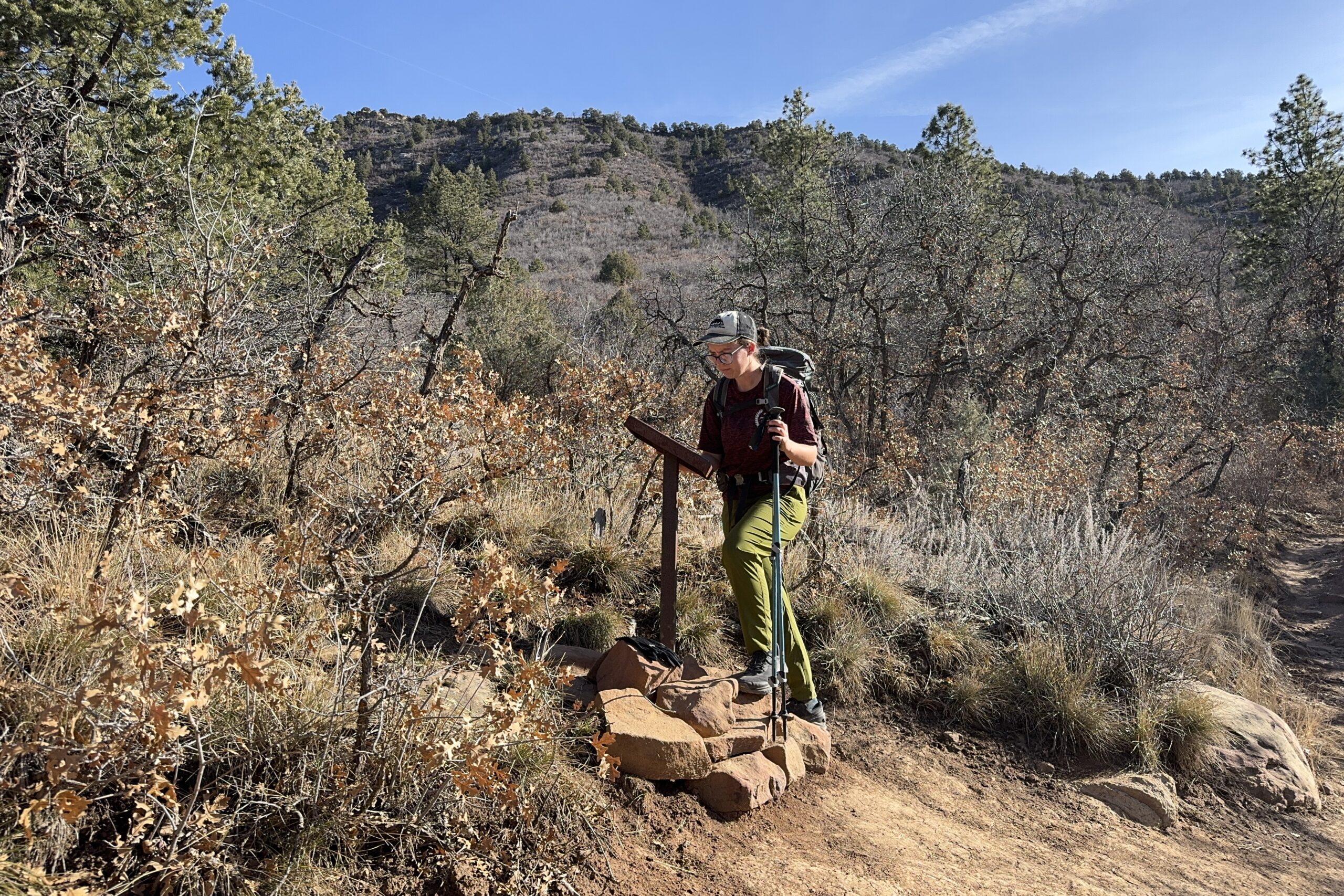
What Other Trekking Poles Should You Consider?
Are the following poles not quite what you are looking for? They share many similarities with the Trail Back trekking poles.
Still stuck? Our trekking pole gear guide offers even more options worth exploring.
Trekology Trek-Z 2.0 Review: If budget is the biggest concern, then we recommend checking out the Trek-Z poles. These poles are heavier and less durable than the Trail Backs, but they have many positive attributes as well. We love that these poles collapse down to a very small size thanks to their folding design. They also come with many add-ons and features, providing a ton of value for the price.
Black Diamond Pursuit Review: One of our favorite trekking poles, the Black Diamond Pursuit is tied with the Trail Backs for our most durable model. We love that these poles are lightweight for aluminum poles. They are also shorter and more comfortable to use. Basically, these poles are Black Diamond’s upgraded version of the Trail Back for those who can afford to pay a bit extra.
MSR DynaLock Explore Review: The MSR DynaLock Explorers cost a little bit more but also perform a bit better than the Trail Backs overall. For example, they are easier to use, more compact, and offer slightly more features. Both models have very similar weights and comfort ratings. Side-by-side, they even have similar-looking grips. It will just come down to personal preference when choosing one.
